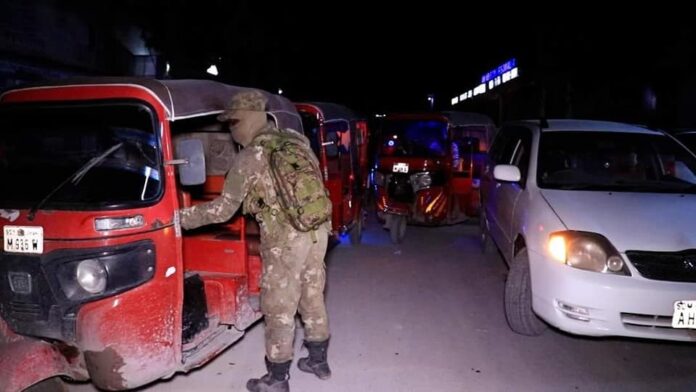MOGADISHU (KAAB TV) – Business owners in Mogadishu reveal that Somalia’s national intelligence agency, NISA, has initiated its own version of the “Zakawat” tax, similar to that previously imposed by the extremist group Al-Shabaab.
The new tax, amounting to $15 per month, is being enforced on various establishments, including local schools, madrasas, and small shops in districts such as Hodan, Wardhigley, Hawl-Wadaag, Yaaqshiid, Heliwaa, Dharkenley, and Kaaraan.
Speaking on the issue, an anonymous primary schoolteacher in the Hawl-Wadaag district disclosed, “This is a monthly payment of Zakawat version for NISA. Schools and madrasas who did not pay were threatened with arrest and closure of their businesses.”
Another teacher, who also serves as an imam at a local mosque and works at a madrasa in Dharkenley, added, “The payment is made at the NISA office every month and no receipt is provided.”
When contacted for comment, NISA officers in Hawl-Wadaag and Dharkenley declined to provide any statements on the matter.
Meanwhile, a teashop owner along Maka al-Mukarama road lamented that despite paying daily taxes to the city council, she continues to face threats from plainclothes NISA officers in her neighborhood, demanding the additional $15 per month.
The teashop owner, identified only as Halima, expressed her concerns about the situation sating “If I do not pay them, they will bring problems such as labeling me as part of Al-Shabaab or accusing me of a crime I did not commit. So, it is a form of protection.”
Residents in various city districts reported an increased deployment of plainclothes NISA officers throughout various neighborhoods in Mogadishu. However, local residents have voiced suspicions that many of these newly deployed officers are young ex-defectors from the Al-Shabaab terrorist group.
The term “Zakawat” refers to a tax-like revenue collection method previously employed by Al-Shabaab, involving the levying of funds from local businesses.
The introduction of a similar practice by a government agency like NISA has raised significant concerns among the public and local business owners alike.


